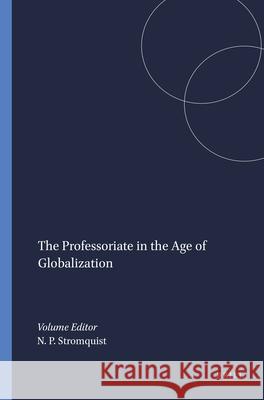The Professoriate in the Age of Globalization » książka
The Professoriate in the Age of Globalization
ISBN-13: 9789087900830 / Angielski / Miękka / 2007 / 248 str.
Globalization has profoundly affected the university. It has shaped what is being learned, the use of technologies in the classroom, the connectivity between professors and institutions nationally and worldwide, the conditions of academic work, the relationship between knowledge production and the market, and the lives and interactions of students and faculty.This book concentrates on a key figure in university life: the professoriate. It probes its conditions in a comparative perspective, bringing to the fore research findings from six countries with different historical trajectories, social visions, and degrees of insertion in capitalist modes of production: Denmark, South Africa, Mexico, Brazil, Russia, and Peru. Through each national study, common issues emerge, yet their particular contextual natures point to distinct developments. The contribution of this book resides in the coherence of all six studies, focusing on the impacts of globalization and systematically linking the massification of higher education to the emergence of detached, vulnerable professionals who face increasingly weak employment conditions, limited possibilities for advancement and governance, and a diminished professional identity-but who are also benefiting from increased cross-national contacts and easier access to knowledge. The book will appeal to several audiences. Graduate level students in courses of international development, globalization, gender studies, sociology of education, anthropology of education, and comparative higher education will find in the books content fertile terrain for reflection and discussion. Professionals in comparative and international education, higher education, and educational research in general will find comparative insights to widen their understanding of higher education in contemporary society. Policy-makers and advisors to government agencies will find lessons applicable to their own countries.











